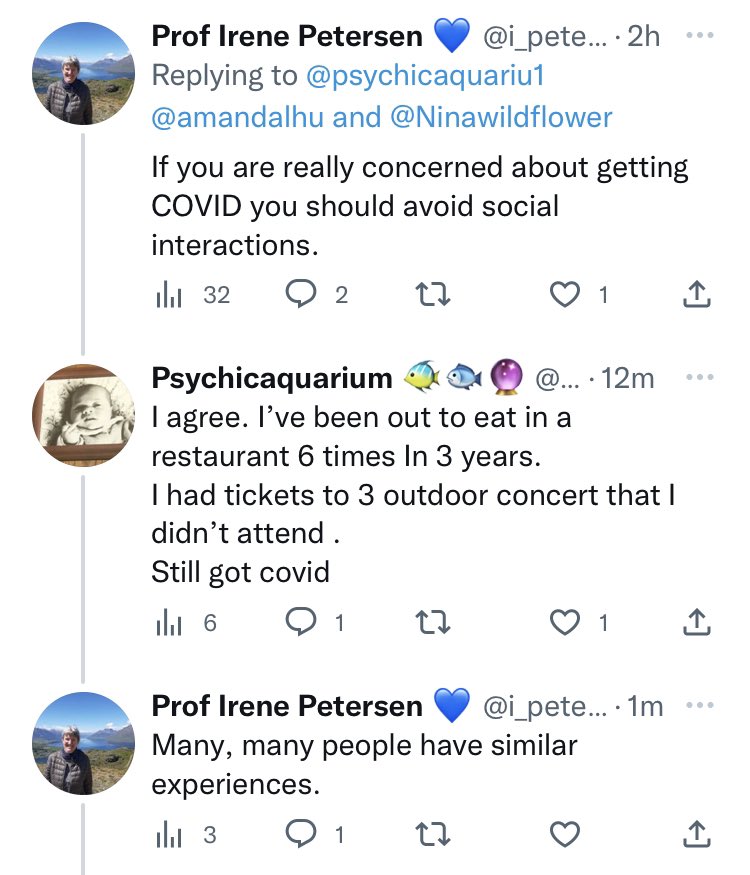
I’ve been thinking a lot about changing attitudes about smoking in our society and parallels to COVID and surprisingly, I feel somewhat optimistic. Given the timeline from: 1/5
The rise of its ubiquity (early 1800s), scientists connecting smoking to lung cancer (1900), tobacco companies acknowledging it internally (1952), but only 1/3 of doctors thought it was definitive (1960), to mass acknowledgement (1990s) and bans inside (2003 in Canada) 2/5
I’d say we’ve gone from 1800 to 1960 in 3 years. The evidence is mounting that COVID is harmful long-term. The standards for buildings and shared spaces are changing. Behaviour follows. 3/5
We are in the tricky time period when you might have known smoking is harmful, but we still had unpartitioned smoking/non-smoking sections. If you didn’t want to breathe in smoke, people thought you were weird or a buzzkill because you refused eat in restaurants. 4/5
We are not going back to pre-pandemic life. Now is the time to really focus on surviving while the rest of the world catches up. 5/5
Reference and a note: workers who could not choose to avoid bad conditions or social pressures bore the greatest cost of smoking. That’s why COVID safety should be a key worker issue. tobaccocontrol.bmj.com/content/21/2/87
• • •
Missing some Tweet in this thread? You can try to
force a refresh






